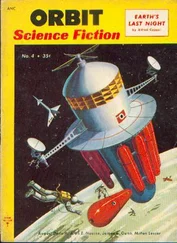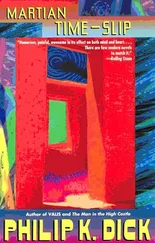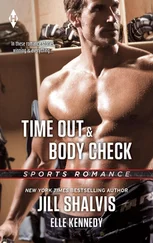Philip Dick - Time Out of Joint
Здесь есть возможность читать онлайн «Philip Dick - Time Out of Joint» весь текст электронной книги совершенно бесплатно (целиком полную версию без сокращений). В некоторых случаях можно слушать аудио, скачать через торрент в формате fb2 и присутствует краткое содержание. Жанр: Фантастика и фэнтези, на английском языке. Описание произведения, (предисловие) а так же отзывы посетителей доступны на портале библиотеки ЛибКат.
- Название:Time Out of Joint
- Автор:
- Жанр:
- Год:неизвестен
- ISBN:нет данных
- Рейтинг книги:5 / 5. Голосов: 1
-
Избранное:Добавить в избранное
- Отзывы:
-
Ваша оценка:
- 100
- 1
- 2
- 3
- 4
- 5
Time Out of Joint: краткое содержание, описание и аннотация
Предлагаем к чтению аннотацию, описание, краткое содержание или предисловие (зависит от того, что написал сам автор книги «Time Out of Joint»). Если вы не нашли необходимую информацию о книге — напишите в комментариях, мы постараемся отыскать её.
Time Out of Joint — читать онлайн бесплатно полную книгу (весь текст) целиком
Ниже представлен текст книги, разбитый по страницам. Система сохранения места последней прочитанной страницы, позволяет с удобством читать онлайн бесплатно книгу «Time Out of Joint», без необходимости каждый раз заново искать на чём Вы остановились. Поставьте закладку, и сможете в любой момент перейти на страницу, на которой закончили чтение.
Интервал:
Закладка:
For the first time in his life he found himself leaving Earth. Journeying out into space, between planets. Free of gravity. The greatest tie had ceased to hold him. The fundamental force that kept the universe of matter behaving as it did. The Heisenberg Unified Field Theory had connected all energy, all phenomena into a single experience. Now, as his ship left Earth, he passed from that experience to another, the experience of pure freedom.
It answered, for him, a need that he had never been aware of. A deep restless yearning under the surface, always there in him, throughout his life, but not articulated. The need to travel on. To migrate.
His ancestors had migrated. They had appeared, nomads, not farmers but food-gatherers, entering the West from Asia. When they had reached the Mediterranean they had settled down, because they had reached the edge of the world; there was no place left to go. And then later, hundreds of years later, reports had arrived that other places existed. Lands beyond the sea. They had never gotten out onto the sea much, except perhaps for their abortive migration to North Africa. That migration out onto the water in boats was a terrifying thing for them. They had no idea where they were going, but after a while they had made that migration, from one continent to another. And that held them for a time, because again they had reached the edge of the world.
No migration had ever been like this. For any species, any race. From one planet to another. How could it be surpassed? They made now, in these ships, the final leap. Every variety of life made its migration, traveled on. It was a universal need, a universal experience. But these people had found the ultimate stage, and as far as they knew, no other species or race had found that.
It had nothing to do with minerals, resources, scientific measurement. Nor even exploration and profit. Those were excuses. The actual reason lay outside their conscious minds. If he were required to, he could not formulate the need, even as he experienced it fully. No one could. An instinct, the most primitive drive, as well as the most noble and complex. It was both at once.
And the ironic thing, he thought, is that people say God never meant for us to travel in space.
The lunatics are right, he thought, because they know it has nothing to do with how profitable the ore concessions can be made to be. We're only pretending to mine ore on Luna. It's not a political question, or even an ethical one. But you have to answer something when someone asks you. You have to pretend that you know.
For a week he bathed in the warm mineral waters at the Roosevelt Hot Springs on Venus. Then they shipped him back to Earth. And, shortly after that, he started spending his time thinking back to his childhood. To the peaceful days when his father had sat around the living room reading the newspaper and the kids had watched Captain Kangaroo on TV. When his mother had driven their new Volkswagen, and the news on the radio hadn't been about war but about the first Earth satellites and the initial hopes for thermonuclear power. For infinite sources of energy.
Before the great strikes and depressions and civil discord that came later.
That was his last memory. Spending his time meditating about the 'fifties. And then, one day, he found himself back in the 'fifties. It had seemed a marvelous event to him. A breath-taking wonder. All at once the sirens, the e.e. buildings, the conflict and hate, the bumper strips reading ONE HAPPY WORLD, vanished. The soldiers in their uniforms hanging around him all day long, the dread of the next missile attack, the pressure and tension, and above all the doubt that they all felt. The terrible guilt of a civil war, masked over by greater and greater ferocity. Brother against brother. Family against itself.
_A Volkswagen rolled up and parked. A woman, very pretty and smiling, stepped out and said,_
_"Almost ready to go home?"_
_That's a darn sensible little car they've got, he thought. They made a good buy. High resale value._
_"Just about," he said to his mother._
_"I want to get a few things in the drugstore," his father said, closing the car door after them._
_Trade-in on electric razors, he thought as he watched his mother and father go off toward the drug department of Ernie's Shopping Center. Seven-fifty for your old razor, regardless of make. No ominous preoccupation: the pleasure of buying. Above his head the shiny signs. Colors of shifting ads. The brightness, the splendor. He wandered about the parking lot, among the long pastel cars, gazing up at the signs, reading the words in the window displays. Schilling drip coffee 69 cents a pound. Gosh, he thought. What a buy._
_His eyes took in the sight of merchandise, cars, people, counters; he thought, What a lot to look at. What a lot to examine. A fair, practically. In the grocery department a woman giving away free samples of cheese. He wandered that way. Bits of yellow cheese on a tray. The woman holding the tray out to anyone. Something for nothing. The excitement. Hum and murmur. He entered the store and reached out for his free sample, trembling. The woman, smiling down at him, said,_
_"What do you say?"_
_"Thank you," he said._
_"Do you enjoy this?" the woman asked. "Roaming around here in the different stores while your parents are shopping?"_
_"Sure," he said, munching on the cheese._
_The woman said, "is it because you feel that everything you might need is available here? A big store, a supermarket, is a complete world in itself?"_
_"I guess so," he admitted._
_"So there's nothing to fear," the woman said. "No need to feel anxiety. You can relax. Find peace, here."_
_"That's right," he said, with a measure of resentment at her, at the questioning. He looked once more at the tray of food._
_"Which department are you in now?" the woman asked._
_He looked around him and saw that he was in the pharmacy department. Among the tubes of toothpaste and magazines and sun-glasses and jars of hand lotion. But I was in the food part, he thought with surprise. Where the samples of food are, the free food. Are there free samples of gum and candy here? That would be okay._
"You see," the woman said, "they didn't do anything to you, to your mind. You slipped back yourself. You've slipped back now, just reading about it. You keep wanting to go back." Now she did not have a tray of cheese samples. "Do you know who I am?" she asked in a considerate voice.
"You're familiar," he said, stalling because he could not recall.
"I'm Mrs. Keitelbein," the woman said.
"That's so," he agreed. He moved away from her. "You've done a lot to help me," he said to her, feeling grateful.
"You're getting out of it," Mrs. Keitelbein said. "But it'll take time. The pull on you is strong. The tug back into the past."
_The Saturday-afternoon crowd swarmed on all sides of him. How nice, he thought. This is the Golden Age. The finest time to be alive. I hope I can live like this always._
_His father, beckoning to him from the Volkswagen. Armload of parcels. "Let's go," his father called._
_"Okay," he said, still wandering, still seeing everything, unwilling to let it all go by him. In the corner of the parking lot heaps of colorful paper that had blown there, wrappers and cartons and paper bags. His mind made out the patterns, the cigarette packages crumpled up, the lids to milkshake cartons. And in the debris lay something of value. A dollar bill, folded. It had blown there with the rest. Bending, he sorted it out, tinfolded it. Yes, a dollar bill. Lost by someone, probably a long, long time ago._
_"Hey, look what I found," he called to his father and mother, running toward them and the car._
_Conference, ending in, "Can he keep it? Would it be right?" His mother, concerned._
Читать дальшеИнтервал:
Закладка:
Похожие книги на «Time Out of Joint»
Представляем Вашему вниманию похожие книги на «Time Out of Joint» списком для выбора. Мы отобрали схожую по названию и смыслу литературу в надежде предоставить читателям больше вариантов отыскать новые, интересные, ещё непрочитанные произведения.
Обсуждение, отзывы о книге «Time Out of Joint» и просто собственные мнения читателей. Оставьте ваши комментарии, напишите, что Вы думаете о произведении, его смысле или главных героях. Укажите что конкретно понравилось, а что нет, и почему Вы так считаете.









